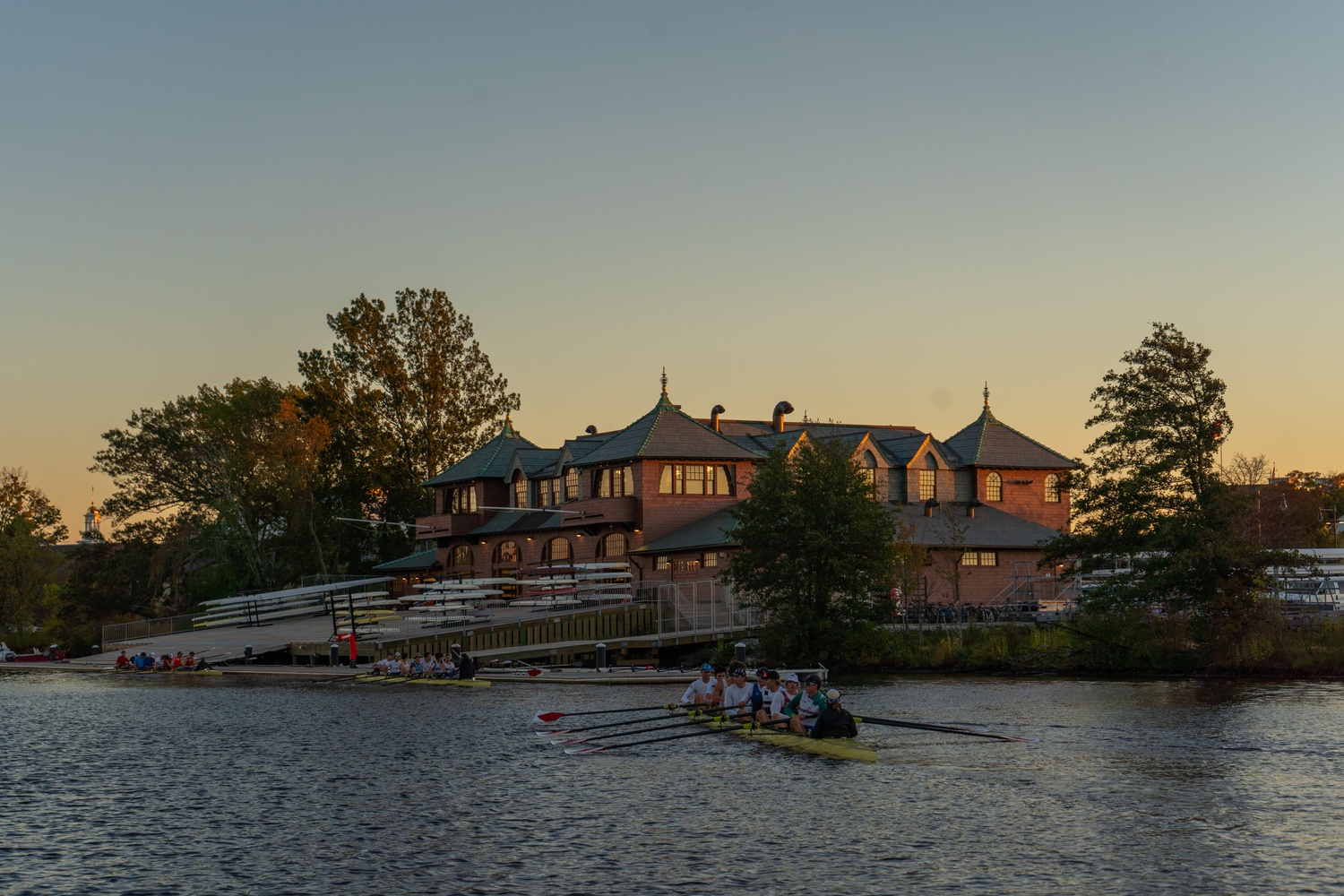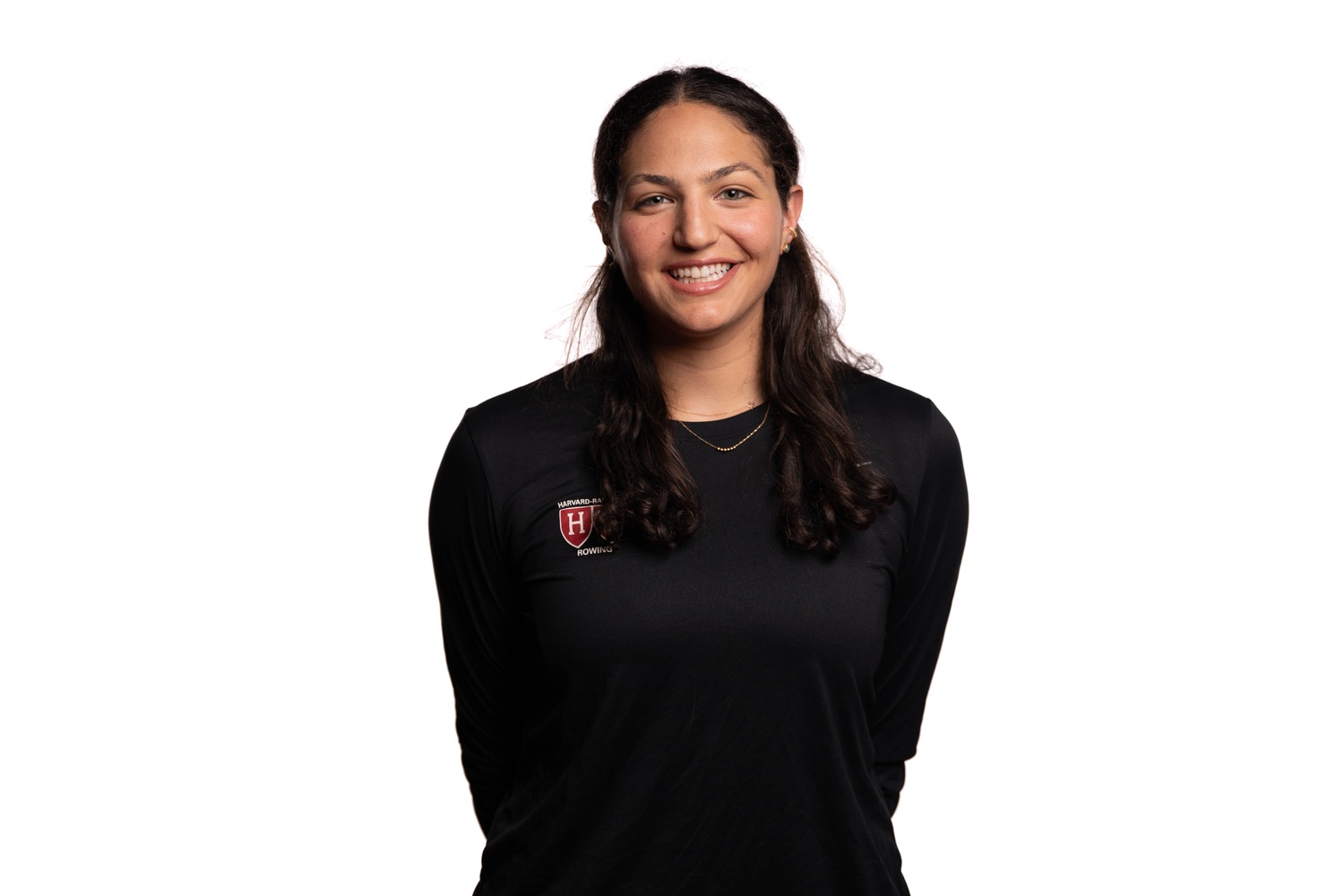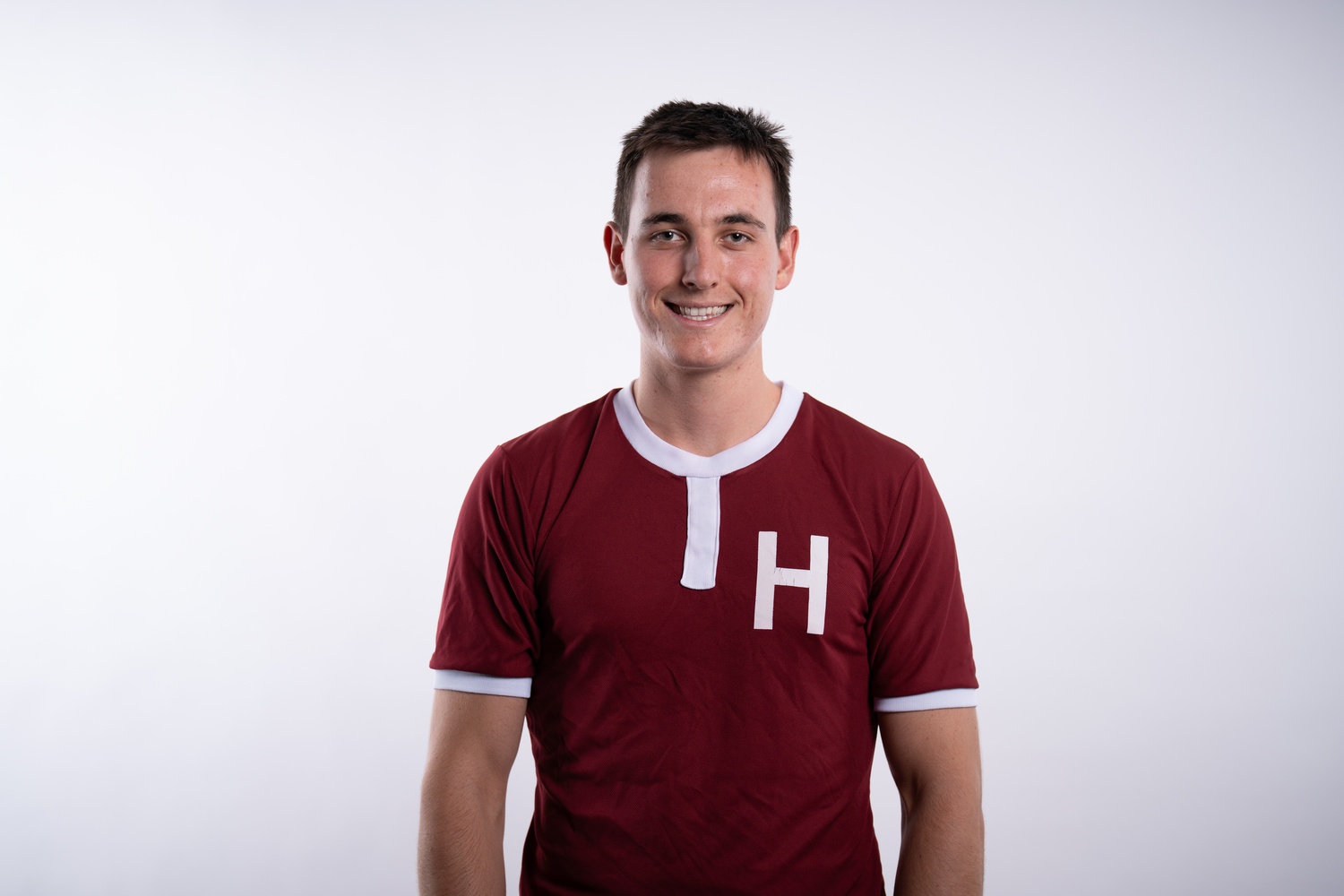
News
Summers Will Not Finish Semester of Teaching as Harvard Investigates Epstein Ties

News
Harvard College Students Report Favoring Divestment from Israel in HUA Survey

News
‘He Should Resign’: Harvard Undergrads Take Hard Line Against Summers Over Epstein Scandal

News
Harvard To Launch New Investigation Into Epstein’s Ties to Summers, Other University Affiliates

News
Harvard Students To Vote on Divestment From Israel in Inaugural HUA Election Survey
Meet the Captains: Harvard & Radcliffe Crews Take on the Head of the Charles Regatta

To both experienced and inexperienced spectators of the Head of the Charles Regatta, the caps, unisuits, and faces of Harvard and Harvard-Radcliffe boats can be hard to distinguish.
The Crimson spoke to the captains of Harvard and Harvard-Radcliffe teams to best understand the culture and the drive that really makes their boats fly.
Radcliffe
The Harvard-Radcliffe Crew program, composed of both the lightweight and heavyweight teams, has great pride in its historical past.
The two women’s teams are the only varsity teams at Harvard that voted to remain under Radcliffe’s black and white shield following what Harvard Athletics calls the “non-merger merger” of the Harvard and Radcliffe Athletic programs.
“The rowing team chose to remain Radcliffe, in part to honor that it was a separate space from the men,” said the current Harvard-Radcliffe heavyweight senior co-captain, Lindsey Brail.
“For us, it’s a point of pride to respect the women who came before us, who fought for us to have a varsity team, who were extremely competitive and successful in their first iterations, and who laid the foundation for us to transition to the NCAA to compete and have our own national championship,” she added.
Harvard-Radcliffe Heavyweight Team

The Radcliffe women’s varsity heavyweight team has undoubtedly leaned on the successes from Radcliffe’s historical legacy. RVH currently boasts two Rhodes Scholars as well as 13 Olympians.
“The academic and rowing success is not something that you say as a tagline for your university and its rowing program,” said Brail. “It’s something that Radcliffe embodies and has a special place to do it.”
The team, led by Brail and her co-captain Jenna Kempster-Taylor, strives to create a culture where everyone is comfortable and has the space to be a leader. The welcoming environment promoted in the boathouse helps to motivate the women as they proceed through their intense training schedule.
“The space that the team creates in Weld Boathouse is a place for you to embrace who you are unapologetically, and for you to show yourself that you are tough, that you can do hard things, and that you do hard things while uplifting the other women around you,” Brail explained.
“Our idea is that a fun team is a fast team,” Brail added. “Finding ways to have fun with the training, with the process, and with each other just makes us able to row the boats faster.”
The camaraderie that the team fosters extends to its fans and its alumni, which is particularly noticeable in Cambridge as the alumni return for the historic HOCR.
Weld Boathouse is located conveniently between the Anderson and Weeks Bridges. Crews participating in the regatta will have to navigate a massive turn right as they row under Weeks Bridge. Then, they will have to pick up speed for the straight shot under Anderson Bridge.
“For us, we have a whole crew of alumni on the docks cheering so loud, creating this tunnel for us to go through,” said Brail while describing the environment on Weld’s docks. “We have the ability to take twenty strokes for Radcliffe, for the alumni, for our fans, for our families, for everyone who has come to see us. That gets us through that hard stretch.”
That same spirit of tradition and unity that powers the team through the HOCR has shaped Brail’s own experience as a Radcliffe rower.
“Radcliffe has made me very comfortable with challenging myself, holding others around me to a high standard, and has set the foundation for success in whatever I choose to do with my life,” Brail said.
“That’s what’s so special about having a varsity women’s team that chooses its own name and lives in a tiny space,” she added. “We get to say we are going to be here, we are going to be badass, and we’re going to do it together, and there’s nothing you can do about it.”
The team will strive for a successful performance this weekend before looking to extend that success into the spring NCAA season.
Harvard-Radcliffe Lightweight
Both the Radcliffe name and the Weld Boathouse are shared by the heavyweights and the Radcliffe varsity lightweights. Led by seniors Kristine Schwartz and Sisira Holbrook and junior Rikke Nielsen, RVL culture is built on strong team connections and propelled by their commitment to one another and their goals.
“I could get a meal and have a really good conversation with every single person on the team, and it wouldn’t be awkward. We’d have things to talk about for hours,” Schwartz said. “Which I think is pretty unique for a group of 26 people.”
The captains attributed the personal connections among every teammate to the nature of the sport. Beyond their typical twice-daily practices, a boat’s success is only possible with synchronicity and trust at all times.
“When you’re out on the water, it’s just you as a boat,” Holbrook said. “You have to be moving in perfect time with everyone else in the boat and really understanding each other very well on a really minute level.”
Although it’s difficult to define a consistent culture across a roster of 26 rowers, Schwartz, Holbrook, and Nielsen all characterized RVL as gritty, caring, and fun. The captains emphasize intentionality and selflessness in everything the team does, believing it contributes to an atmosphere of positive pressure.
“We feel like this group of athletes is stronger and more determined than anything. Everyone’s working very hard,” Holbrook said. “It really does feel very powerful to be so dead-set on a mission together and be so committed to accomplishing it, doing whatever it takes for the people around you to succeed and doing that together.”
RVL members also write each other race-day letters the night before competitions as a tradition to help build the team culture. Sometimes they are randomly paired or specifically assigned, but each team member receives a thoughtful note to keep in mind on the day of the race.
With one race win already accomplished, RVL has its sights set on an undefeated season. On Oct. 4, they finished first in a scrimmage against other Boston-based teams, setting a dominant and determined tone as the world’s largest three-day regatta now arrives.
“Head of the Charles is a big deal, period. To everyone,” Holbrook said. “It’s magical.”
Like the heavyweights, RVL benefits from the home course advantage and positioning of the Weld Boathouse.
“Because it’s the middle point, you’re getting tired, so you really need this boost,” Nielsen said.
“An extra boost we have that other teams we’re competing with don’t have because we know that’s our home, that’s our people standing there yelling at us.”
While the sheer size of the HOCR and its significance to the rest of RVL’s season may seem intimidating, the captains described their crew as “fun,” acknowledging how important it is to embrace the ups and downs of the season and enjoy the opportunities to face challenges together.
“Fun makes boats faster,” Nielsen said.
“And fast boats are fun,” Holbrook added.
Harvard Heavyweight

Harvard University Boat Club — the name for the men’s heavyweight team — boasts a deep roster that continues to drive the team to significant success.
“We have a roster of about fifty people, so we’re able to put out four or five boats each year for the Head of the Charles,” explained captain Ben Scott. “That’s five opportunities to win.”
The depth stems from a thriving walk-on culture shared across Harvard and Radcliffe programs. Scott himself joined HUBC as a walk-on, proving that commitment and hard work, not recruitment status, dictate success on the Charles. Since joining the team, the Perth, Australia native has earned the title of 2025 IRCA First Team All-American for his achievements in the stroke seat of the varsity boat.
“The more numbers you have, the more upward pressure you have on the top boat and the faster that top boat ultimately goes,” explains Scott while describing the walk-on culture.
Despite the inherently competitive nature of the sport, HUBC finds strength in unity.
“Rowing is a sport where, while you might have a captain, all nine people in the boat have just as much of a role as each other,” says Scott. “You can’t have heroes, and you also can’t have people who are falling behind. It just has to be full focus with everyone on the same page.”
“Everyone matters to the team an equal amount,” the captain added. “Everyone supports everyone on the team, every crew matters, and I guess that’s what makes HUBC so special.”
The team’s motivation comes not merely from an intrinsic love for competition, but also from Harvard’s oldest and most renowned rival, Yale.
“All 50 of us are at Harvard to beat Yale,” Scott said with a grin. “That’s what drives us all year long.”
Each year, before heading to the Henley Royal Regatta, HUBC faces off against its historic rival, a fierce competition that motivates the team all year long.
While training, Scott describes his team as persistent, both on and off the water, as the rowers navigate both intense workouts and Harvard’s rigorous academic expectations. He also credits HUBC for its responsiveness, as it adapts to coaching advice to enhance its performance on the water.
“There’s so much that can happen in rowing since it's a very dynamic, very fast-paced sport,” Scott said. “We’re responsive to coaching and improving our weaknesses, and I think that’s been a key part of the program the last few years.”
For HUBC, the HOCR is an exciting opportunity to set the tone for the remainder of the year. It is also a chance for the team to face off against alumni, many of whom compete for national teams, training programs, or Oxford and Cambridge Universities after graduating from Harvard.
“This is the most important race of the fall,” said Scott. “It by no means determines who’s going to win the National Championship in June, but it’s a great starting point and it gives you something to go off for the rest of the year.”
Scott also emphasizes the excitement of hosting such a prominent regatta in Cambridge. The HOCR receives significant attention, not just from Harvard’s students, nor avid rowing fans, but also from the greater Cambridge and Boston communities.
“There aren’t many rowing races where you get that many spectators and that sort of high viewership of a single race,” said Scott.
Through it all, Scott praises his teammates for making the experience as an HUBC rower unforgettable.
“My rowing mates here at Harvard, I consider my best mates for life,” shared Scott. “I’ll be talking to them decades down the line.”
Harvard Lightweight
Harvard Varsity Lightweights is heading into the HOCR with unflinching determination as the team’s varsity eight looks to secure its fourth-straight victory at the regatta.
While the crew focuses on the four-peat as a collective goal, captain Ben Lundie described a culture that also encourages personal achievements and asks for the same level of commitment to those aspirations.
“If you have a goal to do something, you have to back it up with your own work,” he said.
In HVL’s training leading up to the fall season’s only race, Lundie emphasized that all the memebers of the team have an intrinsic sense of motivation. He said hard work and integrity are core values of the team.
“That’s something we emphasize every day,” he said. “To succeed in the sport, it is basically all about putting in as much work as possible.”
Similar to sentiments expressed by the RVL captains, HVL appreciates the mental and physical toll of the sport. But, pushing through difficult practices and competitions requires teammates to motivate each other and to take on a strong, positive mindset of their own.
“Although it is hard, I think we do try to enjoy ourselves as much as possible as we do it,” Lundie said. “If you’re not enjoying it, you’re not going to do as well.”
The HOCR competitors’ eagerness to challenge HVL’s boats only solidifies the Crimson’s resolve. Despite the pressure of the ever-growing target on their backs, Lundie said the team is motivated by their past successes on their home course and the opportunity to fight for it again.
“It’s the one race everyone seems to turn up to,” he said. “With it being our home order as well, you feel like you need to defend it. So it is a pretty special time of year.”
— Staff writer Isabel C. Smail can be reached at isabel.smail@thecrimson.com.
— Staff writer Bennett Trubey can be reached at bennet.trubey@thecrimson.com.
Want to keep up with breaking news? Subscribe to our email newsletter.
